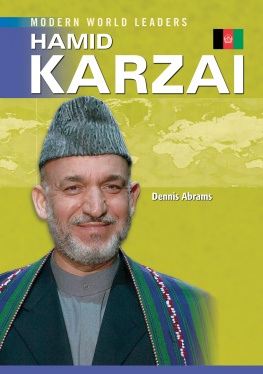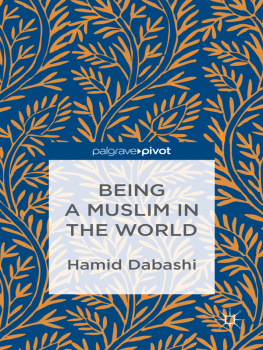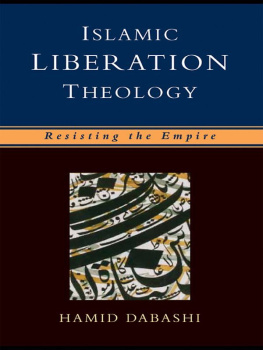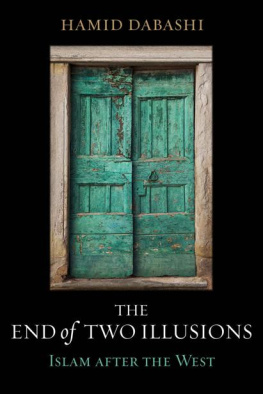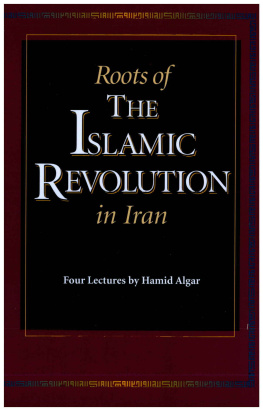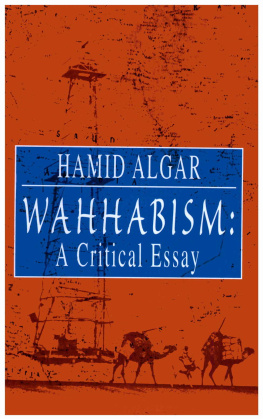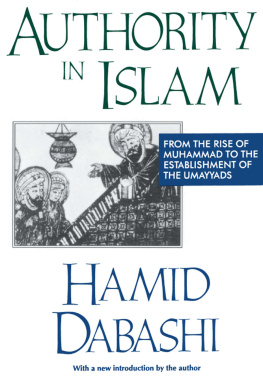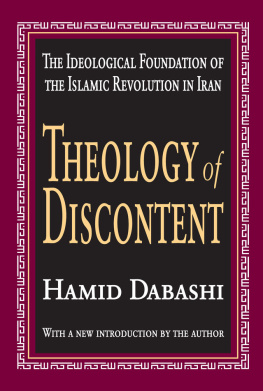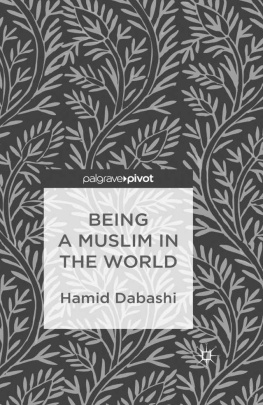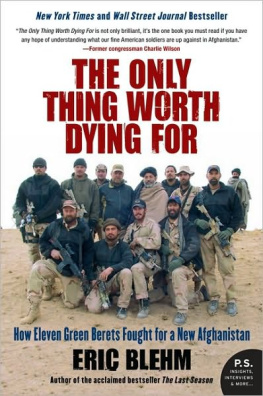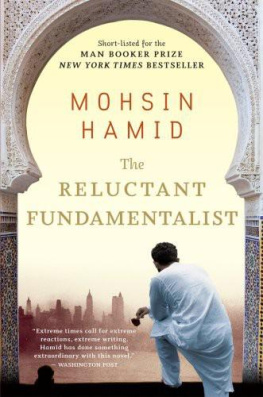Dennis Abrams - Hamid Karzai
Here you can read online Dennis Abrams - Hamid Karzai full text of the book (entire story) in english for free. Download pdf and epub, get meaning, cover and reviews about this ebook. year: 2013, publisher: Infobase Publishing, genre: Politics. Description of the work, (preface) as well as reviews are available. Best literature library LitArk.com created for fans of good reading and offers a wide selection of genres:
Romance novel
Science fiction
Adventure
Detective
Science
History
Home and family
Prose
Art
Politics
Computer
Non-fiction
Religion
Business
Children
Humor
Choose a favorite category and find really read worthwhile books. Enjoy immersion in the world of imagination, feel the emotions of the characters or learn something new for yourself, make an fascinating discovery.
- Book:Hamid Karzai
- Author:
- Publisher:Infobase Publishing
- Genre:
- Year:2013
- Rating:3 / 5
- Favourites:Add to favourites
- Your mark:
- 60
- 1
- 2
- 3
- 4
- 5
Hamid Karzai: summary, description and annotation
We offer to read an annotation, description, summary or preface (depends on what the author of the book "Hamid Karzai" wrote himself). If you haven't found the necessary information about the book — write in the comments, we will try to find it.
Hamid Karzai made history on December 7, 2004, when he was officially sworn in as Afghanistans first democratically elected president. The world applauded as he vowed
Dennis Abrams: author's other books
Who wrote Hamid Karzai? Find out the surname, the name of the author of the book and a list of all author's works by series.
Hamid Karzai — read online for free the complete book (whole text) full work
Below is the text of the book, divided by pages. System saving the place of the last page read, allows you to conveniently read the book "Hamid Karzai" online for free, without having to search again every time where you left off. Put a bookmark, and you can go to the page where you finished reading at any time.
Font size:
Interval:
Bookmark:
Copyright 2013 by Infobase Learning
All rights reserved. No part of this publication may be reproduced or utilized in any form or by any means, electronic or mechanical, including photocopying, recording, or by any information storage or retrieval systems, without permission in writing from the publisher. For more information, contact:
Chelsea House
An imprint of Infobase Learning
132 West 31st Street
New York NY 10001
ISBN 978-1-4381-4754-3
You can find Chelsea House on the World Wide Web
at http://www.infobaselearning.com
Tuesday, December 7, 2004, was a cold, overcast morning in Kabul, the capital city of Afghanistan. But for 46-year-old Hamid Karzai and the people of Afghanistan, it was a day bright with hope and promise. Karzai was about to be inaugurated as the first democratically elected president in Afghanistan's history. It was a true milestone for the Afghan people.
As head of the powerful Popolzai subtribe, the group that had provided most of Afghanistan's leaders since the 1770s, Karzai was born to be a leader, and actually had been serving as the country's leader since December of 2001. He first served as chairman of the Afghan Interim Authority (AIA) for a six-month period. Then, he was elected president by a nationwide loya jirga (a traditional meeting of Afghanistan's tribal leaders, representing every Afghan ethnic group). But today was different. Previously, Karzai had been named or appointed president by a select group of people. This time, he'd been elected to the presidency by the entire nation. All eyes were upon him. The hopes and dreams of his exhausted and war-torn nation rested on his shoulders.
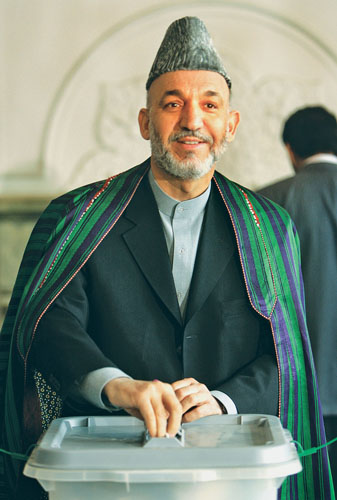
On October 9, 2004, Hamid Karzai was elected president of Afghanistan, becoming the first-ever democratically elected Afghan leader. In December of that year, Karzai was officially sworn in as president, an event that indicated a new beginning for the once-unstable nation. Karzai is photographed in the capital city of Kabul as he casts his ballot in the presidential election.
Source: AP Photo/David Guttenfelder.
The use of the clichd phrase "war-torn" is, in fact, a bit of an understatement. Hamid Karzai was about to be inaugurated as the first elected president of a nation on the verge of collapse. Years of misrule, war, and chaos had helped to make Afghanistan one of the poorest nations on the planet, with up to two-thirds of the population living on less than two dollars a day. Millions of its citizens were living as refugees. Its cities had been heavily bombed. In the countryside, landmines were an ever-present danger. And all throughout the country, criminals and warlords ruled.
"Chaotic" is a good word to describe Afghanistan's recent political history. Since 1973 alone, it had seen its national leader deposed (1973), executed (1978), executed (1979), removed (1987), overthrown (1992), overthrown (1996), and finally, overthrown (2001).
Afghanistan had been invaded by the Soviet Union in 1979. This brought about a 10-year revolt by the mujahideen (often defined as "holy warriors") and forced nearly 5 million Afghans to flee their homes and become refugees in the neighboring countries of Iran and Pakistan. Following the Soviet defeat and withdrawal in 1999, six years of near-chaos followed, as various mujahideen factions, tribal groups, and warlords all fought and jockeyed for power. This turmoil led directly to the rise of the infamous Taliban.
With its promises to bring order and stability to Afghanistan, the Taliban seized power in 1996, eventually controlling up to 90 percent of the country. (The remaining 10 percent, mostly the northeast section of the country, was largely controlled by the Northern Alliance.) As soon as it took power though, the Taliban imposed its strict interpretation of Islamic law on the country, banning, among other things, television and music, children's toys, kite flying, and the Internet. The Taliban also made it illegal for women to go to school, to work, to show their ankles, to wear makeup, or even to laugh in public. In addition, the Taliban gave aid and refuge to numerous terrorist organizations, including Osama bin Laden and al Qaeda.
The terrorist attacks by al Qaeda against the World Trade Center and the Pentagon on September 11, 2001, spelled the beginning of the end for the Taliban. U.S. and allied military action, along with the opposition forces of the Northern Alliance quickly drove the Taliban from power, leading ultimately to Hamid Karzai winning Afghanistan's first presidential elections, on October 9, 2004.
So it was that at 11:30 on the morning of December 7, 2004, Hamid Karzai entered the reception hall of the presidential palace. There he received a tumultuous standing ovation from 600 invited guests. Government officials, bearded tribal elders in traditional turbans, as well as foreign guests cheered the man whom they saw as the best hope of the Afghan nation. Karzai was accompanied into the hall by Mohammed Zahir Shah, 90 years old, the former king of Afghanistan whose ouster in 1973 had begun the nearly 30 years of unfortunate history that followed.
After placing his right hand on the holy Koran and taking the oath of office, Karzai gave his 15-minute inaugural address. Vowing to disarm regional militias, stomp out corruption, conduct fair parliamentary elections in 2005, and eliminate poppy cultivation (poppy cultivation had made Afghanistan the world's leading opium producer), Karzai went on to acknowledge the past, but also to look hopefully to the future:
Every vote that was cast in the elections was a vote for Afghanistan whether I received it or another candidate. I am confident and proud that this nation is determined to rebuild Afghanistan and build it fast; to live in security, and to stand on its own feet.As Merajuddin Patan, the governor of Khost province said in an interview shortly before the ceremony, "This is the birth of our nation. I believe the real history of Afghanistanmodern historywill begin with this."
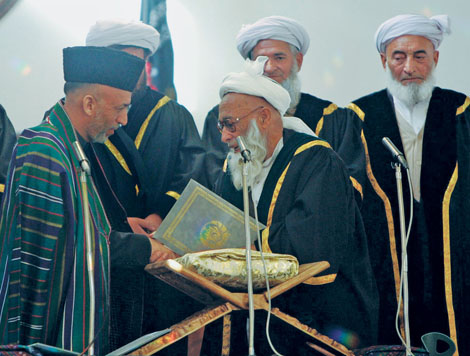
On December 7, 2004, newly elected Afghan president Hamid Karzai (left), shakes hands with Afghan Supreme Court Chief Justice Fazl Hadi Shinwari (right) during his inauguration. Many public officials attended this memorable ceremony, including Afghanistan's former king, Zahir Shah, and U.S. Vice President Dick Cheney.
Source: AP Photo/Ahmad Masood, Pool.
Karzai's election and inauguration may have spelled a new beginning for Afghanistan, but a country can never completely break away from its past. A nation, in effect, is its past. All its history, the good as well as the bad, is what makes a nation what it is. And, Afghanistan's history has made Hamid Karzai who he is. People are the products of their country: Its history and culture help make them who they are. (Compare, for example, George W. Bush of the United States and Vladimir Putin of Russia. Each man is very much a product of his country's history and culture.) So to explain and to hope to understand the life of Hamid Karzai, we also have to learn about the history and culture of Afghanistan. We have to try to understand how it became the nation that gave rise to both the Taliban and Hamid Karzai. To do that, we'll have to go over several thousand years of Afghan history and learn how geography helped make Afghanistan the country it is today. We'll have to start at the beginning.
Font size:
Interval:
Bookmark:
Similar books «Hamid Karzai»
Look at similar books to Hamid Karzai. We have selected literature similar in name and meaning in the hope of providing readers with more options to find new, interesting, not yet read works.
Discussion, reviews of the book Hamid Karzai and just readers' own opinions. Leave your comments, write what you think about the work, its meaning or the main characters. Specify what exactly you liked and what you didn't like, and why you think so.

